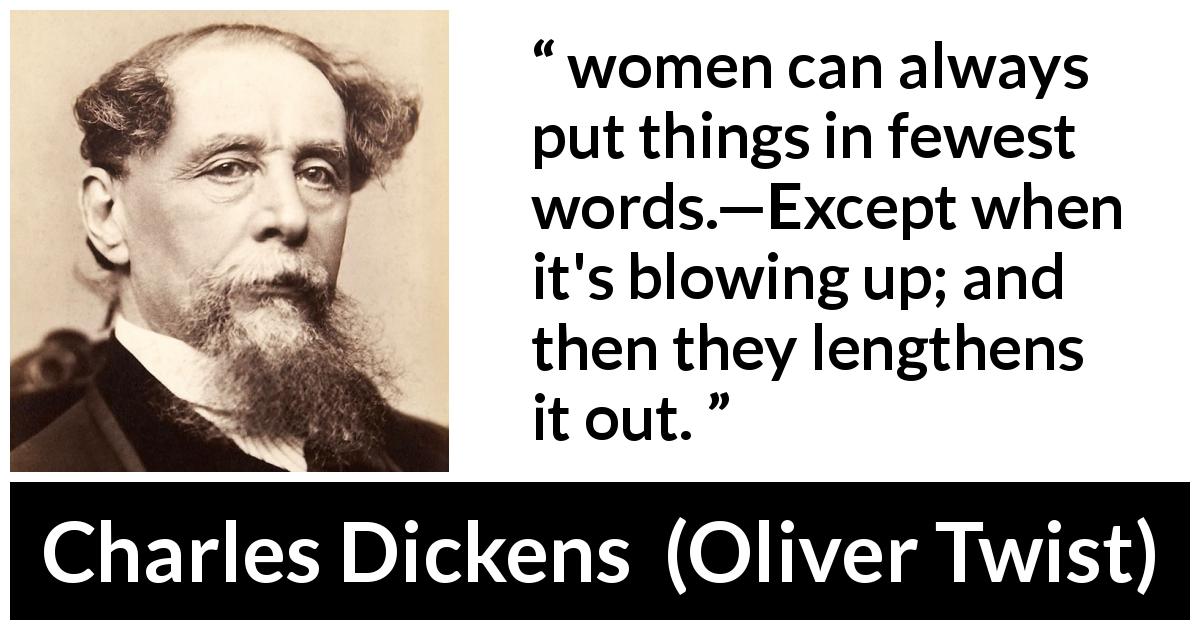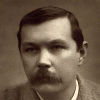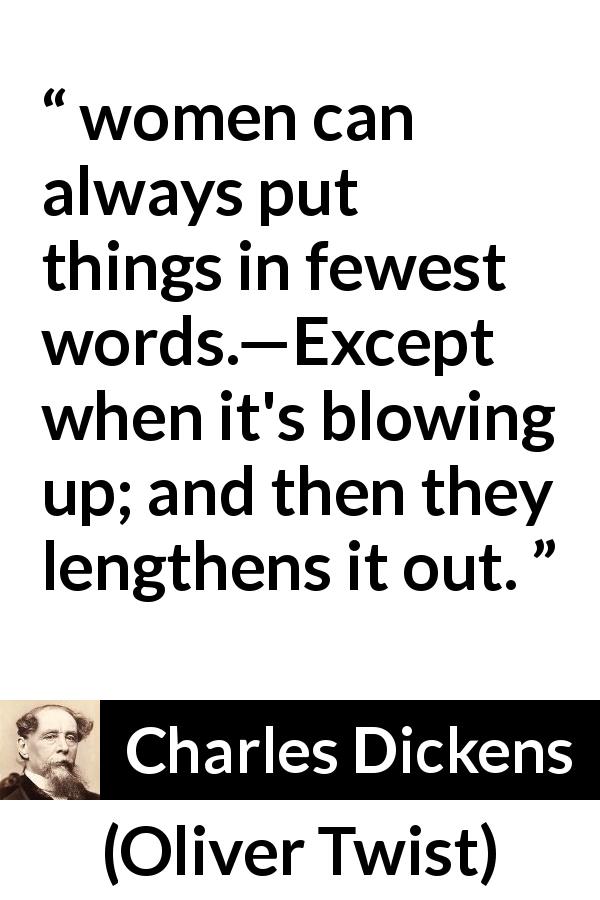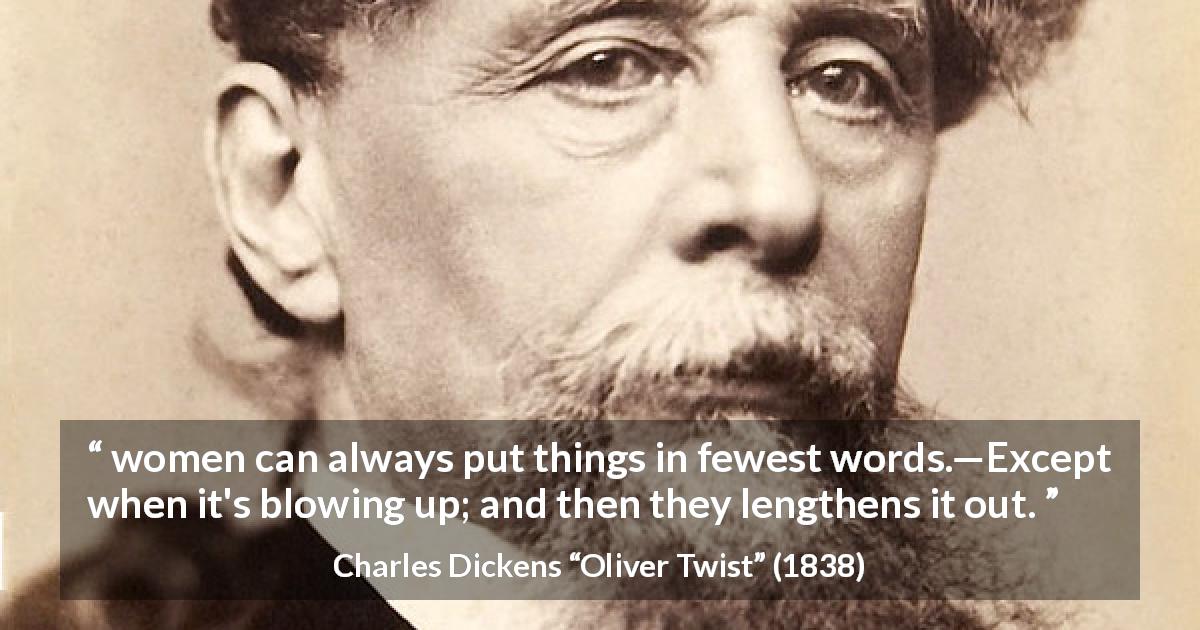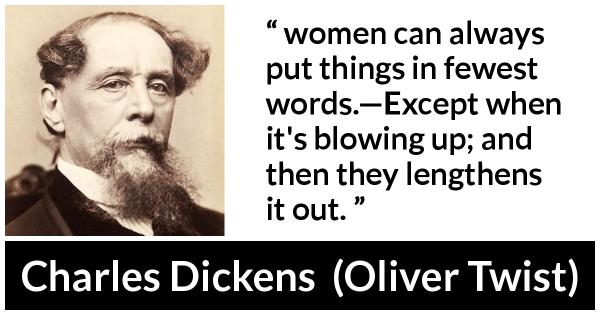“ women can always put things in fewest words.—Except when it's blowing up; and then they lengthens it out. ”
Charles Dickens, Oliver Twist (1838). copy citation
| Author | Charles Dickens |
|---|---|
| Source | Oliver Twist |
| Topic | women words brevity |
| Date | 1838 |
| Language | English |
| Reference | |
| Note | |
| Weblink | http://www.gutenberg.org/files/730/730-h/730-h.htm |
Context
“'The short and the long of what you mean,' said Nancy: speaking very emphatically, and slightly frowning at Oliver as if to bespeak his serious attention to her words: 'is, that if you're crossed by him in this job you have on hand, you'll prevent his ever telling tales afterwards, by shooting him through the head, and will take your chance of swinging for it, as you do for a great many other things in the way of business, every month of your life.'
'That's it!' observed Mr. Sikes, approvingly; 'women can always put things in fewest words.—Except when it's blowing up; and then they lengthens it out. And now that he's thoroughly up to it, let's have some supper, and get a snooze before starting.'
In pursuance of this request, Nancy quickly laid the cloth; disappearing for a few minutes, she presently returned with a pot of porter and a dish of sheep's heads: which gave occasion to several pleasant witticisms on the part of Mr. Sikes, founded upon the singular coincidence of 'jemmies' being a can name, common to them, and also to an ingenious implement much used in his profession.” source
'That's it!' observed Mr. Sikes, approvingly; 'women can always put things in fewest words.—Except when it's blowing up; and then they lengthens it out. And now that he's thoroughly up to it, let's have some supper, and get a snooze before starting.'
In pursuance of this request, Nancy quickly laid the cloth; disappearing for a few minutes, she presently returned with a pot of porter and a dish of sheep's heads: which gave occasion to several pleasant witticisms on the part of Mr. Sikes, founded upon the singular coincidence of 'jemmies' being a can name, common to them, and also to an ingenious implement much used in his profession.” source
